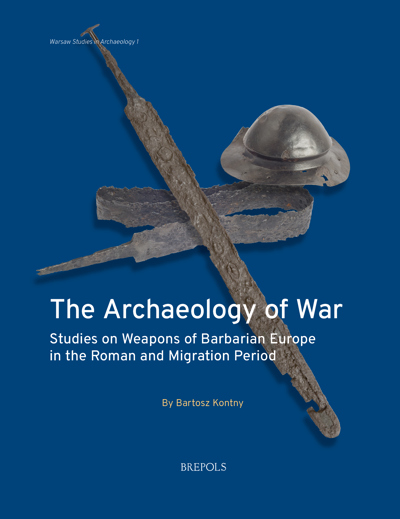From graves to settlements, and from the battlefield to underwater sacrificial sites, weapons dating to the Roman and Migration Period have long been found in an array of contexts throughout the region that forms modern-day Poland. This volume for the first time aims to draw together research into these finds, gathered throughout the author’s career, in a synthetic approach that sees discoveries of swords and other armaments analysed against a broad, comparative background. The work begins with a focus on votive deposits from lakes, here used as a lens for addressing questions about military strategy and war ritual more generally, before moving on to explore the weapons and warriors of the Przeworsk and Wielbark Cultures, as well as shedding light on the lives of the Balts. Finally, an in-depth analysis is made of shields from the protohistoric period, exploring the genesis and variability of the forms taken by this protective weapon. Through this approach, this richly illustrated volume sheds new light not only on the typology and chronology of weaponry from the Roman and Migration Periods, but also on the symbolism and functionality that these arms held.
- Pages: 264 p.
- Size:216 x 280 mm
- Illustrations:108 b/w, 23 col., 1 tables b/w., 1 maps b/w, 7 maps color
- Language(s):English
- Publication Year:2024
- ISBN: 978-2-503-60738-2
- E-book
- Available
Introduction
Chapter 1: Sacrificial Lake Deposits as Sources for Learning about Military Affairs and War Rituals in Barbarian Europe during the Roman and Migration Periods
Chapter 2: Przeworsk Culture Warriors in the Roman and Early Migration Periods
Chapter 3: Weaponry in the Wielbark Culture
Chapter 4: Balt Weaponry from the Roman and Migration Periods in the Territory of PolandChapter 5: The Germanic Shield and its Origin
Works Cited






No comments:
Post a Comment